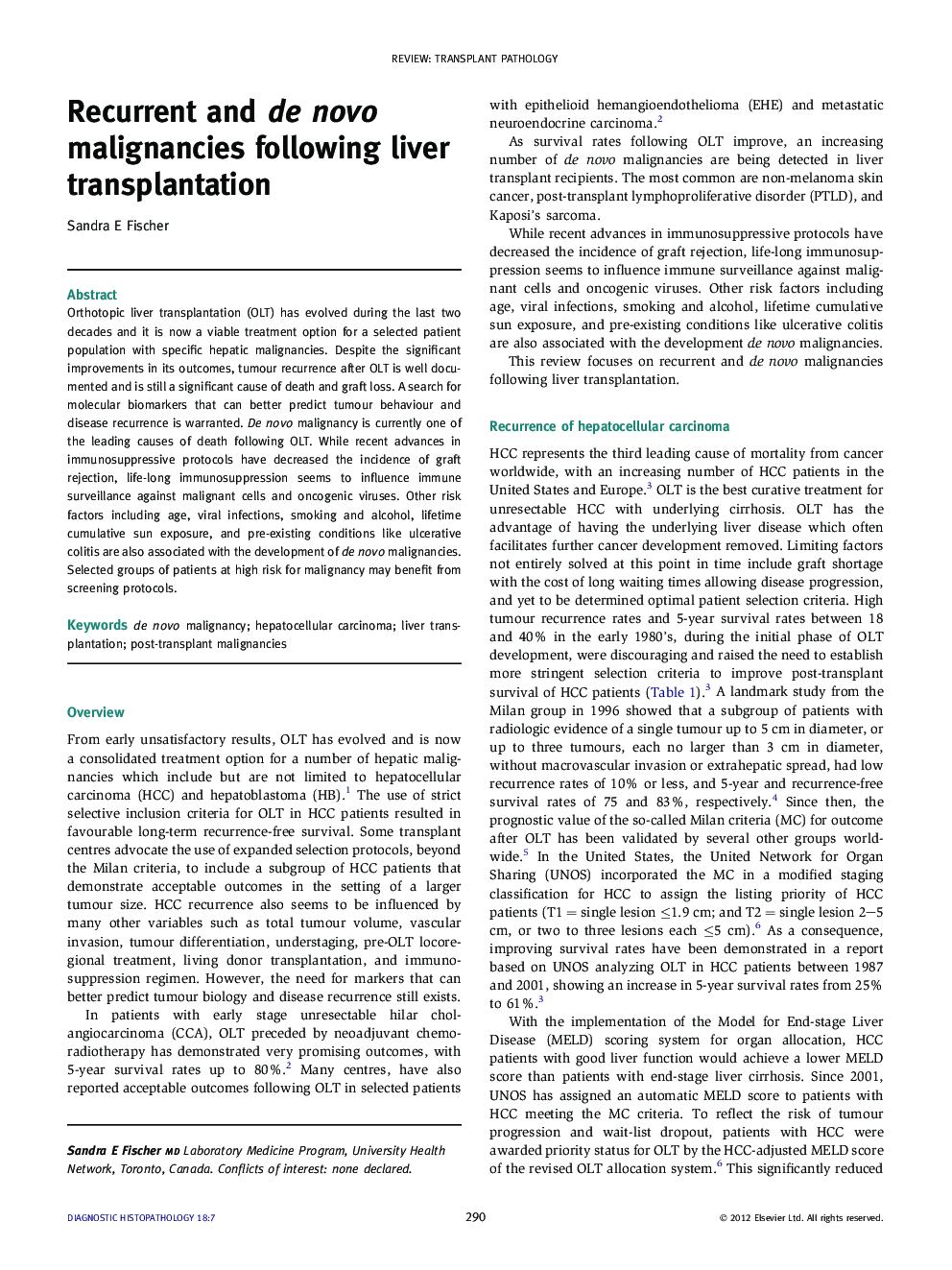| Article ID | Journal | Published Year | Pages | File Type |
|---|---|---|---|---|
| 4131340 | Diagnostic Histopathology | 2012 | 7 Pages |
Abstract
Orthotopic liver transplantation (OLT) has evolved during the last two decades and it is now a viable treatment option for a selected patient population with specific hepatic malignancies. Despite the significant improvements in its outcomes, tumour recurrence after OLT is well documented and is still a significant cause of death and graft loss. A search for molecular biomarkers that can better predict tumour behaviour and disease recurrence is warranted. De novo malignancy is currently one of the leading causes of death following OLT. While recent advances in immunosuppressive protocols have decreased the incidence of graft rejection, life-long immunosuppression seems to influence immune surveillance against malignant cells and oncogenic viruses. Other risk factors including age, viral infections, smoking and alcohol, lifetime cumulative sun exposure, and pre-existing conditions like ulcerative colitis are also associated with the development of de novo malignancies. Selected groups of patients at high risk for malignancy may benefit from screening protocols.
Related Topics
Health Sciences
Medicine and Dentistry
Pathology and Medical Technology
Authors
Sandra E. Fischer,
